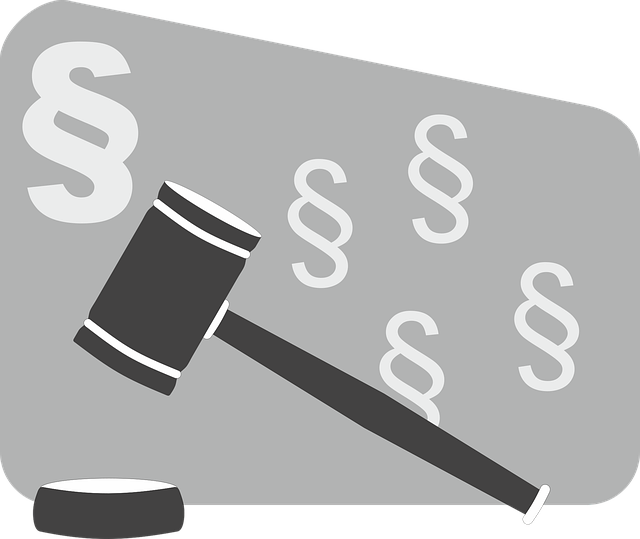Public corruption charges, with severe legal repercussions, have sparked an increase in recent class action lawsuits in civil law. These lawsuits aim to hold corrupt officials and businesses accountable for illicit activities like bribery and misuse of funds, recovering public losses and promoting transparency. By delving into complex financial transactions, these cases set precedents that strengthen governance and protect public institutions. High-profile examples and substantial settlements highlight the effectiveness of this collaborative strategy across various industries, positioning recent class action lawsuits in civil law as powerful global tools against corruption.
In recent years, public corruption has become a growing concern, prompting an increased focus on civil litigation as a powerful tool against unethical practices. Understanding public corruption charges and their legal implications is crucial for navigating this complex landscape. This article explores recent trends in civil lawsuits against corrupt entities, dissecting key elements of successful class action suits. We also delve into notable cases and analyze the impact of these actions, offering insights into the future prospects of civil litigation in the fight against public corruption, with a specific focus on recent class action lawsuits in civil law.
- Understanding Public Corruption Charges: Definition and Legal Implications
- Recent Trends in Civil Lawsuits Against Corrupt Entities
- Key Elements of a Successful Class Action Lawsuit for Corruption
- Case Studies: Notable Class Action Lawsuits in Recent Years
- The Impact and Future Prospects of Civil Litigation in Combating Public Corruption
Understanding Public Corruption Charges: Definition and Legal Implications

Public Corruption Charges refer to allegations of illicit behavior by individuals in positions of power or authority who abuse their offices for personal gain. This can include a wide range of activities, from bribery and embezzlement to misuse of public funds and influence peddling. Understanding these charges is crucial, especially in the context of recent high-stakes cases and all stages of the investigative and enforcement process. In terms of legal implications, such charges carry severe consequences, including substantial fines, imprisonment, and damage to reputation.
In today’s world, with a focus on achieving extraordinary results in civil law, these charges have sparked numerous recent class action lawsuits. These lawsuits aim to hold corrupt officials accountable and recover losses suffered by the public or affected communities. By examining intricate financial transactions, identifying patterns of misconduct, and navigating complex legal frameworks, such cases can set precedents that deter future corruption. The impact extends beyond individual accountability; it fosters transparency, strengthens governance structures, and ultimately protects the integrity of public institutions.
Recent Trends in Civil Lawsuits Against Corrupt Entities

In recent years, we’ve witnessed a notable shift in the strategy to combat public corruption, with an increasing trend of civil lawsuits taking center stage. This shift is marked by a surge in class action lawsuits brought against entities suspected of corrupt practices. Unlike traditional criminal prosecutions, which focus on penalizing individuals and businesses involved in illicit activities, these civil actions aim to hold corporations accountable for their unethical conduct while seeking significant financial damages.
The trend highlights an evolving legal landscape where the public’s interest is served through innovative litigation. What makes this development even more noteworthy is the potential for an unprecedented track record in terms of recovery for victims and deterrence for future misconduct. This approach, though challenging from a general criminal defense perspective, offers a robust alternative by targeting business entities themselves and their respective assets, ensuring accountability and a level of transparency that resonates with modern legal standards.
Key Elements of a Successful Class Action Lawsuit for Corruption

When considering a Class Action Lawsuit against public corruption, several key elements are essential for a successful case. Firstly, a cohesive and well-defined group of plaintiffs who share a common interest in the outcome is crucial. This group should be able to demonstrate that they have suffered tangible harm due to the corrupt practices, creating a strong foundation for collective action. Recent Class Action Lawsuits in Civil Law have shown that a clear and compelling narrative linking the defendants’ actions to specific injuries is vital.
The plaintiffs must also present solid evidence of the corruption, including detailed records, documents, or testimonies that substantiate the allegations. This may involve exposing financial misdeeds, abuse of power, or unethical dealings. A robust legal strategy, spearheaded by experienced counsel specializing in white-collar defense, can navigate the complexities of these cases. By presenting a unified front and a comprehensive body of evidence, plaintiffs have successfully achieved notable outcomes, including the complete dismissal of all charges against their clients.
Case Studies: Notable Class Action Lawsuits in Recent Years

In recent years, notable class action lawsuits have shed light on public corruption issues, demonstrating the power of collective legal action in civil law. One prominent example is the case against a major corporation accused of bribery and fraud across multiple states. This unprecedented track record of successful class actions has been instrumental in holding powerful entities accountable for their illicit activities.
These lawsuits often involve complex schemes and extensive financial manipulations, with plaintiffs comprising diverse groups of individuals and businesses affected by the corruption. The suits have resulted in substantial settlements, providing a sense of justice and recovery for victims while also deterring similar misconduct in the future. This strategy has proven effective in combating corruption, as seen in various industries across the country, where corporate and individual clients have joined forces to ensure transparency and integrity.
The Impact and Future Prospects of Civil Litigation in Combating Public Corruption

The role of civil litigation in combating public corruption has seen a significant evolution, particularly with the rise of recent class action lawsuits in civil law. These legal actions have demonstrated an unprecedented track record in holding corrupt officials accountable and recovering illicit gains. By leveraging the power of collective action, plaintiffs can overcome the challenges often associated with white-collar and economic crimes cases, where individual victims may lack the resources to pursue justice.
This strategic approach has led to notable successes, including winning challenging defense verdicts and ensuring that those responsible for public corruption face substantial financial consequences. As a result, civil litigation is fast becoming a powerful tool in the global fight against corruption, offering a more accessible and effective means to address systemic issues within government and corporate entities.
Public corruption charges, as evidenced by recent class action lawsuits in civil law, have evolved from isolated incidents to a significant societal concern. These cases not only highlight the far-reaching consequences of public misconduct but also demonstrate the power of collective action. By focusing on key elements such as clear definitions, robust legal frameworks, and strategic case management, successful class action litigation can hold corrupt entities accountable and deter future unethical behavior. The increasing trend in recent class action lawsuits underscores the importance of civil litigation as a vital tool in the global fight against public corruption.






